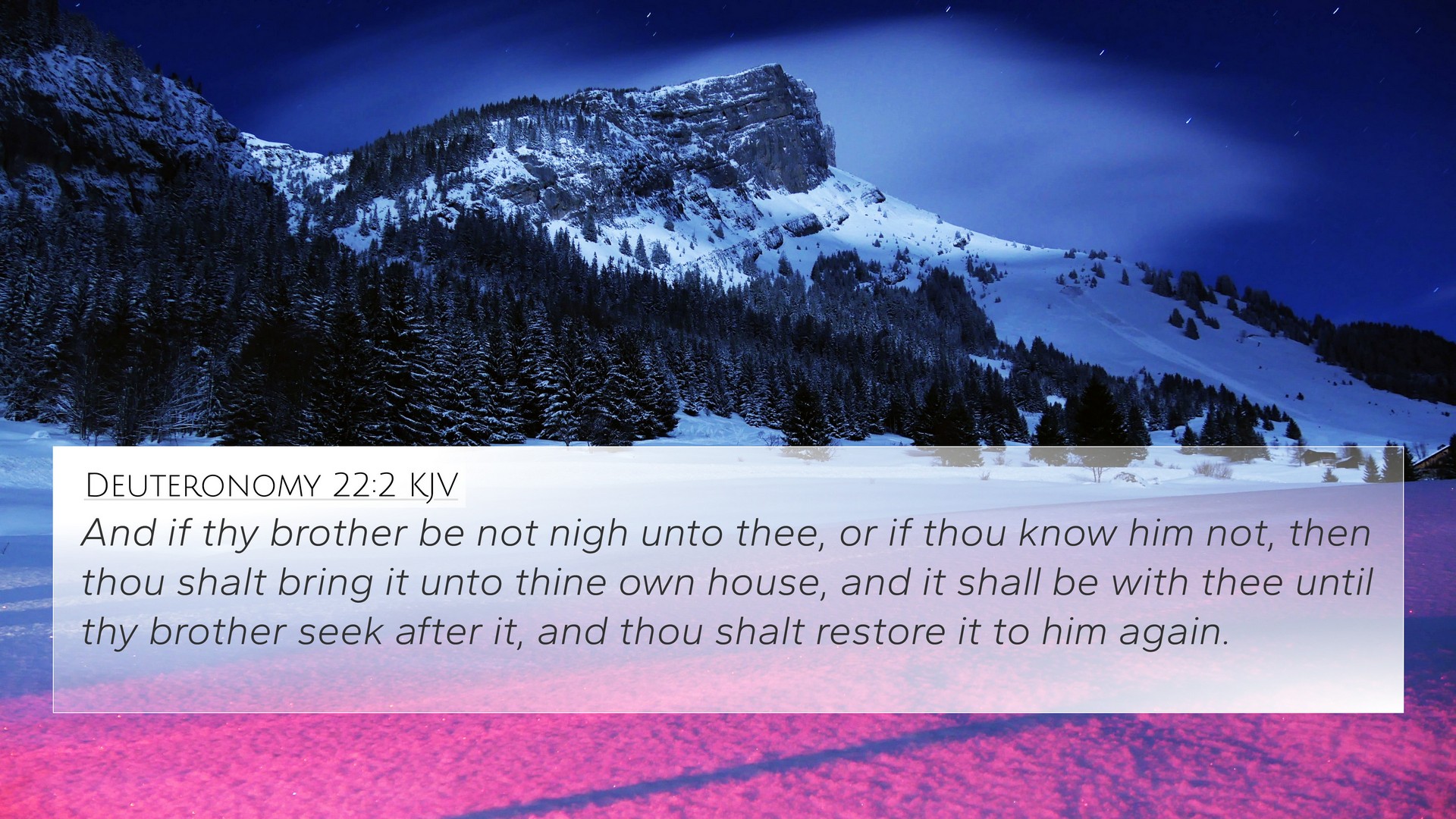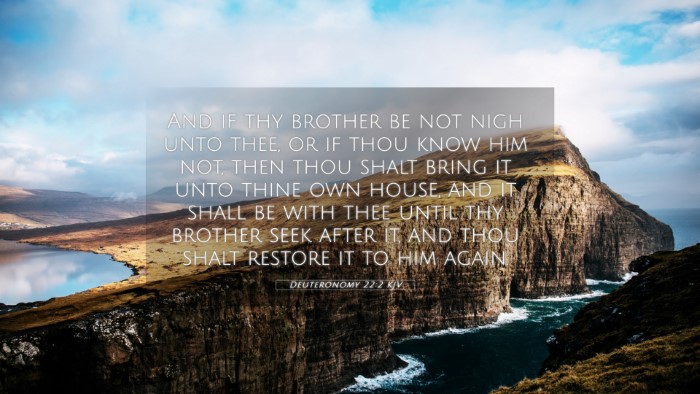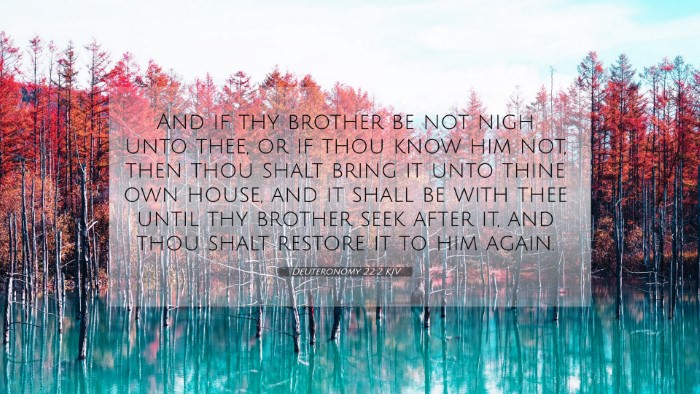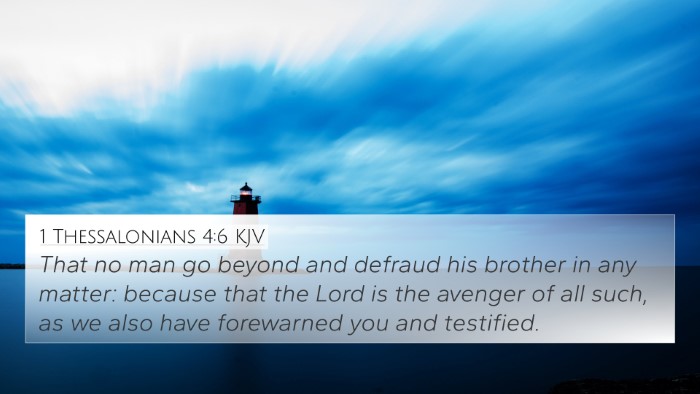Understanding Deuteronomy 22:2
Deuteronomy 22:2 states:
"And if your brother be not nigh unto you, or if you know him not, then you shall bring it unto your own house, and it shall be with you until your brother seeks after it; and you shall restore it to him again."
This verse encompasses significant themes of responsibility, community, and restitution. Below, we summarize interpretations from several public domain commentaries, highlighting the essence of this scripture.
Commentary Insights
-
Matthew Henry:
Henry emphasizes the moral obligation towards our neighbors, indicating that the Law not only fosters respect for one’s property but also carries a duty to assist those in need within the community. The act of returning lost property is a reflection of integrity and love for others.
-
Albert Barnes:
Barnes discusses the practical implications of the verse. He notes that this command not only pertains to tangible possessions but extends to relationships within a community. The idea is to foster a spirit of collective responsibility and support.
-
Adam Clarke:
Clarke outlines the significance of maintaining trust and commitment towards one's neighbor. He suggests that restoring lost items reinforces societal bonds and upholds the societal fabric that God desires amongst His people.
Thematic Bible Verse Connections
This verse serves as a bridge to various interconnected themes found throughout the Bible. The following are notable cross-references:
- Exodus 22:1-3: Discusses the responsibility of a person who finds someone else's property, emphasizing restitution.
- Leviticus 19:18: Commands love for one's neighbor, aligning closely with the intention behind Deuteronomy 22:2.
- Proverbs 3:27: Encourages helping those when able, reinforcing the community orientation of the command.
- Luke 10:30-37: The parable of the Good Samaritan highlights the importance of caring for others regardless of relationship.
- Romans 13:10: Affirms that love is the fulfillment of the law, connecting back to the themes of social responsibility.
- Galatians 6:2: Instructs believers to bear one another’s burdens, echoing the call for communal bonds.
- James 2:15-17: Discusses the faith that acts, emphasizing practical love through actions such as returning lost property.
Bible Verse Parallels
The overarching principle of care for one another's possessions is echoed in various scriptures, creating a comprehensive biblical framework:
- Hebrews 13:16: Calls for doing good and sharing resources, underscoring communal duties.
- 1 John 3:17: Explores how love is manifested through action when observing a brother in need.
Connecting With Other Verses
Utilizing tools for Bible cross-referencing and exploring thematic connections enhances understanding:
- Tools for Bible Cross-Referencing: Resources like Bible concordances facilitate a deeper theological study by revealing relationships among verses.
- Cross-Reference Bible Study: Engaging in a cross-referencing Bible study aids in discovering the breadth of scripture insights and their interrelations.
- Bible Reference Resources: Numerous tools are available to facilitate comprehensive Bible study, helping in identifying vital thematic connections.
Conclusion
Deuteronomy 22:2 invites us into a deeper understanding of God's law regarding our responsibilities toward one another. The comprehensive nature of biblical cross-references allows for a richer grasp of the interconnectedness of scripture. By exploring these connections, believers can better reflect God's heart in their relational dealings.




